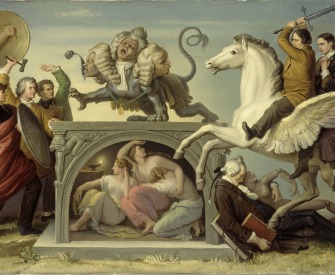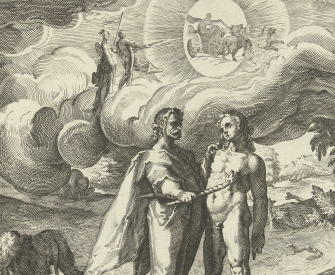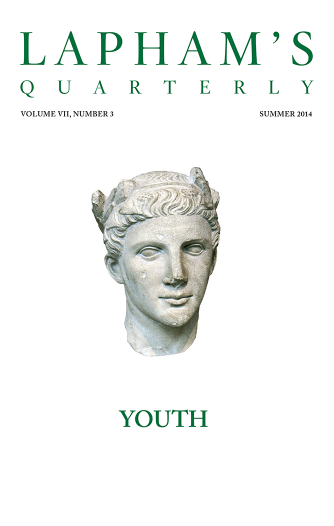A few hours before Yorick breathed his last, Eugenius stepped in with an intent to take his last sight and last farewell of him.
Upon his drawing Yorick’s curtain and asking how he felt himself, Yorick, looking up in his face, took hold of his hand, and after thanking him for the many tokens of his friendship to him, for which, he said, if it was their fate to meet hereafter, he would thank him again and again. He told him he was within a few hours of giving his enemies the slip forever. I hope not, answered Eugenius, with tears trickling down his cheeks, and with the tenderest tone that ever man spoke. I hope not, Yorick, said he. Yorick replied, with a look up and a gentle squeeze of Eugenius’ hand, and that was all, but it cut Eugenius to his heart. Come, come, Yorick, quoth Eugenius, wiping his eyes and summoning up the man within him, my dear lad, be comforted, let not all thy spirits and fortitude forsake thee at this crisis when thou most wants them; who knows what resources are in store, and what the power of God may yet do for thee? Yorick laid his hand upon his heart and gently shook his head. For my part, continued Eugenius, crying bitterly as he uttered the words, I declare I know not, Yorick, how to part with thee, and would gladly flatter my hopes, added Eugenius, cheering up his voice, that there is still enough left of thee to make a bishop, and that I may live to see it. I beseech thee, Eugenius, quoth Yorick, taking off his nightcap as well as he could with his left hand, his right being still grasped close in that of Eugenius—I beseech thee to take a view of my head. I see nothing that ails it, replied Eugenius. Then, alas! My friend, said Yorick, let me tell you, that ’tis so bruised and misshapen’d with the blows which —— and —— and some others have so unhandsomely given me in the dark that I might say with Sancho Panza that should I recover, and “miters thereupon be suffered to rain down from heaven as thick as hail, not one of ’em would fit it.” Yorick’s last breath was hanging upon his trembling lips ready to depart as he uttered this; yet still it was uttered with something of a Cervantic tone; and as he spoke it, Eugenius could perceive a stream of lambent fire lit up for a moment in his eyes—faint picture of those flashes of his spirit, which (as Shakespeare said of his ancestor) were wont to set the table in a roar!
Eugenius was convinced from this that the heart of his friend was broke; he squeezed his hand and then walked softly out of the room, weeping as he walked. Yorick followed Eugenius with his eyes to the door—he then closed them and never opened them more.
From The Life and Opinions of Tristram Shandy, Gentleman. The death of Parson Yorick, a country clergyman who is one of the novel’s more significant characters, occurs within the first seventy pages of the first volume. Yorick is said to have been based on Sterne and Eugenius on the writer John Hall-Stevenson, a close friend Sterne met while attending Jesus College, Cambridge. “In a book for free spirits,” wrote Friedrich Nietzsche, “one cannot avoid mention of Laurence Sterne, the man whom Goethe honored as the freest spirit of his century.”
Back to Issue



